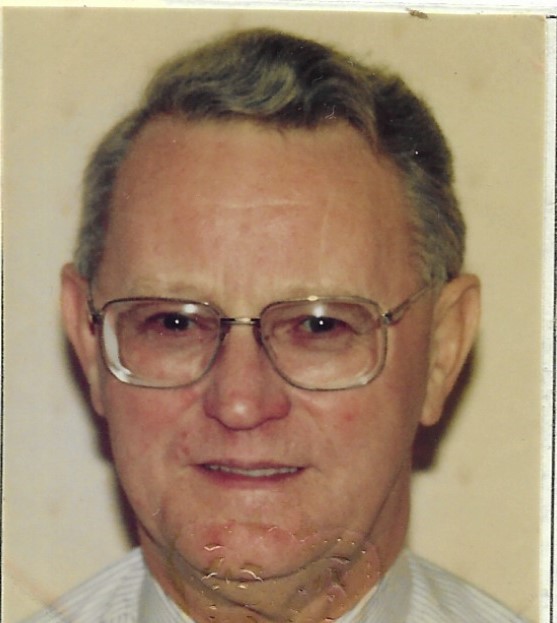We have looked at how John Brown’s career developed from being the son of a runner to being a runner in his own right, then an official, from there to being an administrator and moving on to the biggest stage of all as admin officer for the Great Britain team at no fewer than three Olympic Games. All well and good, but what exactly is an admin officer – we can all guess and probably all have a vague and general idea about it but no one know exactly what it is.
Jim McInnes had been invited to speak to a local club in Ayrshire but at the last minute he had to call off and John was the stand in. He spoke about the European Championships in Stuttgart in August 1986 and defined his role. He said: “At this stage it may be helpful to explain the function of the Administrative Officer. In general total involvement for the well-being of the team through to their safe arrival back home. You are the financier, the fixer, the negotiator, the arranger, the wheeler dealer, the mail man, the office boy, the clothing officer, and in this respect Stuttgart was a classic with hurried arrangements being made to bring out two lots of additional clothing to meet our requirements. You are often the shoulder to rest a head upon when the tension is building up before competition or the one when defeat has deflated aspirations.
The hours however are long, over the eleven days of our stay, I was probably working 19 hours a day.
A major asset is being able to anticipate the problems likely to arise for the manager outwith the aspects of the competition and in this respect I have the advantage of having been a team manager on many occasions. The accommodation provided was ideal with everypne being accommodated in single rooms. The food was superb and was provided from very early morning till around midnight.
“Bear in mind that some athletes were leaving for the stadium about 7:00 am whilst some were not returning until after 11:00 pm. The Neckar Stadium was located some nine miles from our accommodation, however transport was no problem in that (and this was another of the Admin Officer’s jobs – to act as sweeper up) from an athlete’s room to the stadium was timed at 23 minutes. Thjis was achieved by using the ‘S’ Bahn, a form of underground railway and a station was located within the campus but outwith the security zone. Four trains ran each hour with the front carriage being reserved for our exclusive use and also security being provided by the police.
One must remember that a high quality team of athletes with our superstars of Coe, Cram and without a doubt the world’s greatest athlete, Daley Thomson, have to be looked after in relation to their world class standing and every effort must be made to enable them to settle in to an atmosphere which will allow them to perform to the best of their ability.
“Hence the value of our exceptionally talented medical team comprising of two doctors – one is a Harley Street consultant and the other a general practitioner in the west midlands. Whilst the two physiotherapists have a wealth of experience in the sports mediciane field. Like all of us in the management team the hours are endless but there are no complaints and no lines of demarcation. The Director of Coaching assisted his team of six specialist coaches provide their technical expertise and see to the day to day preparation of athletes.
“Earlier I referred to the team being drawn form all areas of the United Kingdom and it is interesting to note that 0f the 17 members of the management team 7 are Scots. On the evening prior to the competition starting the team meeting was duly convened and our team manager has quite a flair for introduing his support group and is always good for a few witty remarks, but of course coming very quickly to the serious business of the determination to go out and win and little did we realise that we were about to set the heather on fire.”
The extract above gives a fair description of the admin officer’s role as seen and experienced by John. The job is wide and varied and in fact goes further afield than dealing with the team and its members. He also has to deal with the host city or governing body, with local transport bodies and with sponsors. Nor does he say that with a full team of athletes there is a huge range of personalities with all sorts of preferences, modes of conversation and requirements. The SAAA championships when held at Meadowbank used to have the heavy throwers sharing a dressing room with the marathon runners – many of the former were extreme extraverts while the marathon men in general were quiet introverts. Multiply that across all the disciplines and then the personality types within the different categories and then put them in one team. That alone was quite a task. For instance, there was the athlete who drove his car to the local airport, parked it there at £10 a day for the duration of the contest and then returned to pick it up, expecting the admin officer to cover the cost. Then having had the difficulty it caused pointed out to him, did it again for the next foreign competition. Not only that but he would not accept a cheque, he needed money to pay the airport! Or the experienced athlete who had not competed for GB for two years and turned up to find out that there was no team clothing allocated for him – not John’s fault but it had to be sourced at short notice for him. Other examples are noted throughout these pages.
“
